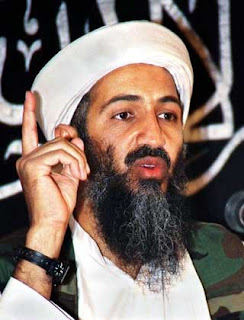Year of the Golden Pig Reading 3: "Jihad: The Trail of Political Islam"

As I have mentioned earlier, I am a slow reader. This third book of the Year of the Golden Pig, is one I started a long time ago... in a country far, far away. It wasn't the most interesting book that I have ever read, but there was a lot in it to hold my interest. It was written before 9/11, but has been updated somewhat to reflect that event. Mostly the book is about the origin of the Jihadist forces that have emerged in the last fifty or so years throughout the Islamic world.
Unfortunately, I don't think many people will support the author's, Gilles Kepel, thesis that Jihadist forces have lost and they are no longer a threat to the world. Of course, he was writing this in the 1990's when Jihadist groups were facing opposition in Algeria, Turkey, and Israel/Palestine. But then 9/11 happened and the optimism of the 1990's disappeared (perhaps Bubba Clinton should have taken off his rose colored glasses; but then again who really was going to make him in the Gay 1990's).
The other day in Philosophy class I had an interesting discussion that touched on the very same issues that Kepel was raising. What defines terrorism was the point of discussion. It wasn't planned, just happened, a teachable moment that might have gotten me fired in the USA (and perhaps even at my current school). The discussion revolved around how terrorism has to have a political component, and has to terrorise illegitimite targets. The recent shooting at Virginia Tech were discussed and I said this wasn't a terrorist attack, since it wasn't political in nature.
One of my more Islamic students, Ibrahim, raised the point that in Israel everyone belongs to the military at some point in their lives (unless they have a religious waiver). Therefore he wondered if civilians there were legitimate targets. I actually couldn't say that they weren't, since teachers and other government civilian employees are often designated as legitimate targets since they (we) are agents of the state. It was an interesting issue in the ontological categorization of terrorism.
In the end I said that history (not just the subject, but time itself) would have to be the ultimate factor in who will be declared a terrorist. This is particulary so if you look at such questions as who is ultimately responsible for more death: Osama bin Laden or American foreign policy; why can America political recognize groups that have taken part in terrorist activity, like many Israeli politicians and the Fatah party, while refusing to recognize others like Hamas and Hezbollah; and how someone like George Washington can go from being a villian in the eyes of the British Empire to a great leader who even has a statue in London?
So, all in all, not the most exciting book in the world, but one that has allowed me to have some amazing discussions while living in the Middle East in this most amazing of times.





